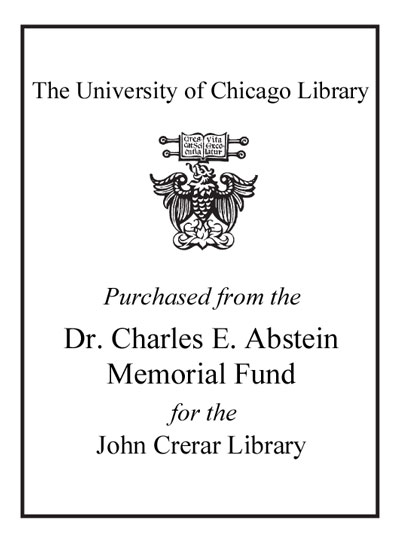Principles of clinical pharmacology /
Saved in:
| Edition: | Third edition. |
|---|---|
| Imprint: | San Diego : Academic Press, Elsevier, 2012. |
| Description: | xxi, 626 pages : illustrations ; 29 cm |
| Language: | English |
| Subject: | |
| Format: | Print Book |
| URL for this record: | http://pi.lib.uchicago.edu/1001/cat/bib/10357049 |
Table of Contents:
- Preface
- Chapter 1. Introduction
- Part 1. Pharmacokinetics
- Chapter 2. Clinical pharmacokinetics
- Chapter 3. ComPartmental analysis of drug distribution
- Chapter 4. Drug absorption and bioavailability
- Chapter 5. Effects of renal disease on pharmacokinetics
- Chapter 6. Kinetics of hemodialysis and hemofiltration
- Chapter 7. Effects of liver disease on pharmacokinetics
- Chapter 8. NoncomPartmental vs. comPartmental approaches to pharmacokinetic analysis
- Chapter 9. Distributed models of drug kinetics
- Chapter 10. Population pharmacokinetics
- Part 2. Drug Metabolism and Transport
- Chapter 11. Pathways of drug metabolism
- Chapter 12. Biochemical mechanisms of drug toxicity
- Chapter 13. Chemical assay of drugs and drug metabolites
- Chapter 14. Equilibrative and concentrative transport
- Chapter 15. Pharmacogenetics
- Chapter 16. Drug interactions
- Part 3. Assessment of Drug Effects
- Chapter 17. Physiological and laboratory markers of drug effect
- Chapter 18. Dose response and concentration response analysis
- Chapter 19. Kinetics of pharmacologic effect
- Chapter 20. Disease progression models
- Part 4. Optimizing and Evaluating Patient Therapy
- Chapter 21. Sex differences in pharmacokinetics and pharmacodynamics
- Chapter 22. Drug therapy in pregnant and nursing women
- Chapter 23. Drug therapy in neonates and pediatric patients
- Chapter 24. Drug therapy in the elderly
- Chapter 25. Clinical analysis of adverse drug reactions
- Chapter 26. Quality assessment of drug therapy
- Part 5. Drug Discovery and Development
- Chapter 27. Project management
- Chapter 28. Drug discovery
- Chapter 29. Pre-clinical development
- Chapter 30. Animal scale up
- Chapter 31. Phase I studies
- Chapter 32. PK and PD considerations in the development of biotechnology products and large molecules
- Chapter 33. Design of clinical development programs
- Chapter 34. Good design practices for clinical trials
- Chapter 35. Role of the FDA in guiding drug development
- Appendix I. Table of Laplace Transforms
- Appendix II. Answers to Study Problems


